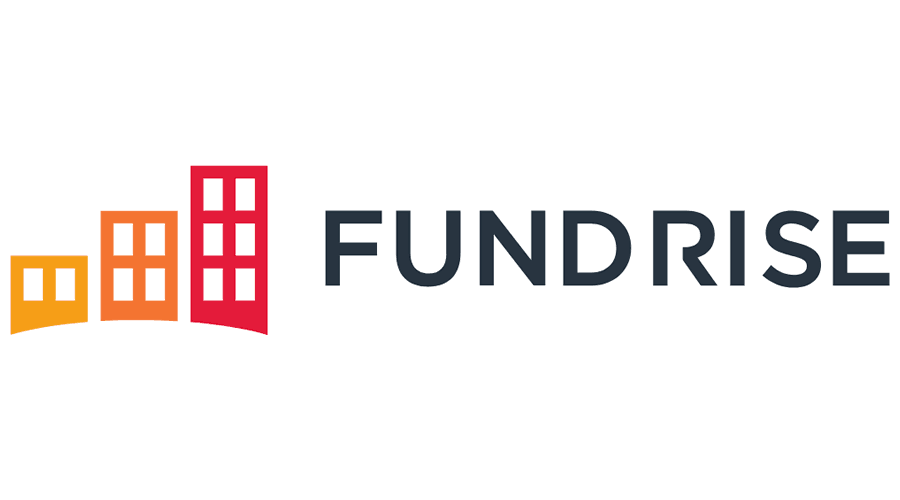The post How Much of Your Portfolio Should you Diversify Into Alternative Investments? by Eric McConnell appeared first on Benzinga. Visit Benzinga to get more great content like this.
Although traditional investments like stocks and bonds have proven successful over the long haul for most investors, they still hold considerable risk for the investor. The stock market can be volatile. If at any one point you have all or too much of your portfolio invested in one stock or sector and it tanks, you could be broke overnight.
Most investment advisors recommend that their clients diversify their stock holdings to include many different stocks in several different sectors. That way, even if a few stocks aren’t doing well, other stocks in the portfolio may perform better. But what happens when the entire stock market crashes or lodges itself in a sustained bear market? This is where the importance of alternative investing comes into play.
What is an Alternative Investment?
Investments are broken down into two separate categories. The first category is known as traditional investments. Historically, stocks, bonds and cash are considered to be traditional investments. An alternative investment is considered anything besides that. Examples of alternative investments would include:
- Real estate
- Precious metals
- Cryptocurrency
- Collectibles
- Venture capital
- Private equity
- Hedge funds
- Commodities
- Wine
- Non-fungible tokens (NFTs)
Why Should you Have Alternative Investments?
Alternative investments are also a great way to build wealth and passive income. This is especially true when it comes to real estate, which is perhaps the most traditional alternative investment. Many investors have created generational wealth for themselves through real estate ownership.
Many investors have gotten wealthy through other alternative investments. Venture capital and private equity can be incredibly lucrative. The same holds true for well-placed bets on commodities futures.
Most recently, cryptocurrency has moved to the forefront of people’s thoughts when it comes to alternative investments. The rise and fall of cryptocurrencies like Bitcoin and Dogecoin has captivated the news, and many crypto investors have made a lot of money.
Aside from the upside, the single biggest reason you should consider alternative investments is that many of them do not perform in lock step with the stock market. For example, the price of real estate or gold or oil may fluctuate, but the value of these assets will not necessarily crater along with stocks in a bear market. While you buy different stocks to have a diverse portfolio, you can make your portfolio even more diverse when you include alternative investments.
How Much of Your Portfolio Should you Diversify Into Alternative Investments?
This is a question that doesn’t have a single, set answer. If you’re talking about alternative investments to diversify your traditional investment portfolio, most investment advisors recommend that no more than 15% to 30% of your portfolio be devoted to alternative investments. This practice will leave enough alternative assets in your portfolio to profit off of them while not over-exposing you to a downturn in your chosen alternative investments.
Some people have built entire portfolios of alternative assets. If you have professional experience or specific knowledge of an alternative investing field, you may take an inverse approach and concentrate 70% to 85% of your portfolio on your preferred alternative investments. Then you would diversify the other 15% to 30% in traditional investments.
Which Alternative Investment is Right for You?
Picking which alternative investment is right for you is a personal choice. The alternative investments you feel most comfortable with will vary based on your risk tolerance, investment goals and the amount of capital you have to invest. The good news is that you can access a wide diversity of alternative offerings and new ways to participate in them.
Where can I Find Alternative Investments?
If you’re thinking about real estate, you can start by looking for opportunities in your own area. However, if you live in an overheated real estate market with high prices, it may be too expensive to make a purchase. In this case, online real estate crowdfunding platforms like RealtyMogul, CrowdStreet and Arrived Homes, where you can buy equity in real estate investments at affordable prices, may work.
If the idea of venture capital or buying into startups excites you, you can use platforms like StartEngine, WeFunder and Seed Invest. You can browse these platforms and find thousands of new startups in a variety of fields to invest in.
In the case of real estate and venture capital/startup funding, if you don’t feel comfortable picking investments yourself, you don’t have to. The world of alternative investing features numerous real estate investment trusts (REITs) and even venture capital funds you can buy into. In those types of offerings, you invest the capital and the fund manager grows your wealth.
Benzinga’s Favorite Alternative Investment Platforms
window.LOAD_MODULE_PRODUCTS_TABLE = true;
Fundrise makes real estate investing affordable to investors. The easy-to-use crowdfunding platform gives you a fixed rate of return on top real estate properties in the U.S.
Here’s why investing your money through Fundrise can improve your portfolio and earn you a reliable source of income.
- Non-accredited investors
- Long-term real estate investors
- Investors looking for affordable opportunities to invest in real estate
- Open to non-accredited investors
- Buy-ins as low as $10
- Simple, multi-tiered system of investing
- Low fee structure
- Many IRA eligible offerings
- Long hold periods
- Lower returns compared to other platforms
Have you ever dreamed of owning a Basquiat painting or one of Warhol’s pop art masterpieces? You can with Masterworks — even if you don’t have $1 million in the bank.
Masterworks is a new platform that allows investors to own shares of famous works of art. Artwork is held in a climate-controlled, secure environment while Masterworks searches for an independent collector or buyer to sell at a profit. When a piece is sold, you’ll receive a share of the profits proportional to your initial investment.
Investors will enjoy Masterworks’ easy-to-follow system and choice of famous art investments.
- You want to diversify your portfolio with alternative, specifically art, investments
- Earn returns up to 8-30%
- You’re interested in investing in art
- A dedicated art membership rep that will help you invest and answer questions
- Clean, attractive, easy to use platform design
- Requires a phone interview before you can invest
- Fee can be confusing for new investors
Yieldstreet is an online investment platform that specializes in alternative investment offerings designed to generate passive income and wealth for investors. The platform offers a 1-stop shop for a range of alternative investments ranging from real estate to structured notes and even art collections.
- Accredited investors looking to diversify
- Alternative investments to stocks and bonds
- Investors looking for passive income
- Easy-to-use platform
- Carefully selected offerings
- Excellent mobile app
- Full spectrum of alternative offerings
- Options for non-accredited investors
- Majority of investments only open to accredited investors
CityVest is a web-based real estate investment platform that was established to give small-to-medium-sized investors access to real estate investment opportunities that typically require 6-figure minimum investments. CityVest does this by pooling multiple investor contributions into 1 bundle large enough to satisfy the minimum investment requirements of the best institutional private equity real estate investment funds.
- Individual investors seeking access to institutional investments
- Experienced investors looking to diversify their portfolio
- Investors seeking investments with strong due diligence and screening
- Access to high-performance institutional funds
- High returns
- Intense vetting of investment opportunities
- Third-party due diligence on all funds
- No registration needed to review investment opportunities
- Quarterly distributions
- Only available to accredited investors
- Not a lot of investor control of fund options
Hedonova is an investment fund that holds a diversified portfolio of alternative investments. Hedonova’s founders set out to create a fund that gives sophisticated investors the benefits of a diversified fund while also placing solid bets on alternative investments like non-fungible tokens (NFTs), wine, cryptocurrencies and real estate.
Hedonova’s fund is also unique because it’s available to investors all over the world and has a reasonable buy-in of only $5,000. If alternative investments strike your fancy, but you don’t know where to begin or don’t want to dive in too deep, Hedonova could offer the perfect combination of diversification and investor flexibility.
With feeder funds in Switzerland, Luxembourg, Singapore and India, European and Asian investors can invest locally while paying local taxes.
- Investors looking to diversify
- Investors seeking a flexible offering with potential upside
- A simple way to make alternative investments without prior expertise
- Low minimum investment $5,000
- Open to investors both inside and outside the U.S.
- No hold period allowing investors to get in or out as they please
- Hedonova is a mutual fund, not an investment platform, meaning there is only one investment option
It’s Never too Late to Join the Alternative Investment Party
If you’ve been sitting on the sidelines waiting for an opportunity to get into alternative investments, there has never been a better time to get into the game. The rise of online investing platforms has created a diverse marketplace of investment offerings in almost every alternative investment sector. The only thing left for you to do is figure out what you want to get into and how you’re going to do it.
Remember, even though you’re making alternative investments, the fundamentals of investing still remain the same. You always face risk of loss, which means you need to conduct due diligence and make sure you are as familiar with the downside as the upside of your chosen investment. If you do that, you’ll be well on your way to adding quality alternative investments to your traditional investment portfolio.
The post How Much of Your Portfolio Should you Diversify Into Alternative Investments? by Eric McConnell appeared first on Benzinga. Visit Benzinga to get more great content like this.
- '
- "
- 000
- a
- About
- access
- accredited
- advisors
- All
- Allowing
- allows
- alternative
- alternative assets
- always
- amount
- answer
- approach
- AREA
- Art
- artwork
- Assets
- available
- Bank
- Bear Market
- because
- before
- benefits
- BEST
- Biggest
- Bitcoin
- Block
- Bonds
- border
- build
- Bundle
- buy
- Buying
- capital
- case
- Cash
- Category
- choice
- chosen
- clients
- collector
- combination
- Commodities
- compared
- concentrate
- Conduct
- Consider
- content
- control
- could
- create
- created
- Crowdfunding
- crypto
- cryptocurrencies
- cryptocurrency
- dedicated
- deep
- designed
- details
- different
- diligence
- diversification
- diversified
- Diversity
- Doesn’t
- Dogecoin
- down
- earn
- easy-to-use
- eligible
- Environment
- equity
- especially
- established
- estate
- European
- Event
- example
- examples
- experience
- Face
- familiar
- Features
- Fields
- Figure
- First
- fixed
- Flexibility
- flexible
- For Investors
- forefront
- founders
- from
- fund
- Fundamentals
- funding
- funds
- Futures
- game
- generate
- generational wealth
- Goals
- going
- Gold
- good
- great
- height
- help
- High
- hold
- Holdings
- holds
- How
- However
- HTTPS
- idea
- image
- importance
- improve
- include
- Income
- incredibly
- independent
- india
- Institutional
- interested
- Interview
- invested
- investing
- investment
- Investments
- investor
- Investors
- IT
- itself
- join
- Know
- knowledge
- known
- large
- lead
- Leave
- LG
- live
- local
- locally
- Long
- looking
- lucrative
- Luxembourg
- made
- make
- MAKES
- Making
- manager
- Market
- marketplace
- meaning
- means
- medium
- membership
- million
- minimum
- Mobile
- money
- more
- most
- multiple
- mutual fund
- Navigation
- necessarily
- New Platform
- news
- NFTs
- non-fungible
- non-fungible tokens
- Notes
- numerous
- offer
- offering
- Offerings
- Offers
- Oil
- online
- open
- opportunities
- Opportunity
- Other
- own
- ownership
- participate
- partner
- passive
- People
- perfect
- perhaps
- period
- personal
- piece
- placing
- platform
- Platforms
- Play
- Point
- portfolio
- portfolios
- potential
- practice
- price
- private
- Private Equity
- Product
- Products
- professional
- Profit
- profits
- properties
- purchase
- quality
- question
- range
- ranging
- rating
- real estate
- reasonable
- receive
- recently
- recommend
- Registration
- reliable
- remain
- require
- Requirements
- return
- returns
- review
- Risk
- same
- sector
- Sectors
- secure
- seed
- seeking
- selected
- sell
- set
- several
- Share
- Shares
- Simple
- Singapore
- single
- sold
- solid
- sophisticated
- specializes
- specific
- specifically
- Sponsored
- start
- started
- Startups
- Still
- stock
- stock market
- Stocks
- strong
- structured
- successful
- switzerland
- system
- talking
- Taxes
- The
- the world
- thing
- Thinking
- thousands
- Through
- time
- Tokens
- tolerance
- top
- traditional
- transition
- types
- typically
- u.s.
- unique
- use
- value
- variety
- venture
- venture capital
- ways
- Wealth
- web-based
- What
- while
- without
- Work
- works
- world
- would
- Your

















